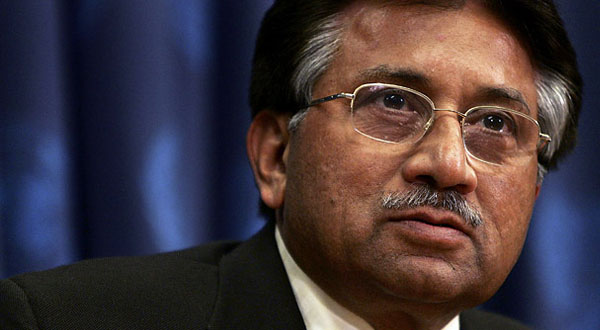A two-member special court bench took up the high treason case against former military dictator retired Gen Pervez Musharraf on Monday.
Musharraf’s attorney, Akhtar Shah, told the bench that his client wants to appear before the court in the high treason case but wants assurances that he would be given presidential security.
Musharraf is facing the high treason case for suspending the Constitution on Nov 3, 2007 — an offence for which he was indicted by the special court on March 31, 2014. That same year, the state prosecution laid down all its evidence but the progress in the case still slowed down due to the former military ruler having filed multiple petitions against his trial at the appellate forum.
In March 2016, he left the country for Dubai to “seek medical treatment” and hasn’t returned since.
During Monday’s hearing, Shah told the Justice Yawar Ali-led two-member bench of the special court that his client would return and “appear before the court if he is given presidential level security by the defence ministry”.
“Musharraf’s life is in danger,” he added. “There were two attempts on his life: once in the Islamabad court and the other in Quetta during the Akbar Bugti case hearing.”
At this, Justice Nazar Akbar said: “There is a non-bailable warrant out against Musharraf, so to provide him security is the government’s responsibility.”
Regarding the federal government’s request to wrap up the case quickly, Justice Yawar observed: “It is necessary to record Musharraf’s [under Section 342 of the Criminal Procedure Code] statement.”
The prosecution reminded the court that Musharraf has failed to appear before the court despite repeated summons.
At this, Justice Yawar noted: “What we have to see is that whether a trial can be held in Musharraf’s absence. And the question is that can the absconder’s counsel appear in the court.”
In July 2018, the case had suffered a blow when head of the prosecution Mohammad Akram Sheikh, whom the PML-N government had appointed, tendered his resignation citing an “imminent change of government at the Centre”.
The court today expressed its displeasure at Sheikh’s behaviour, with Justice Yawar saying: “If Akram Sheikh wanted to leave the case, then why didn’t he submit an application? He is a senior lawyer; he should have known better.”
The court adjourned the case until August 27 and said that it will hear “arguments on the legal side of statements made as per Section 342”.
Section 342 relates to the “power to examine the accused”.





